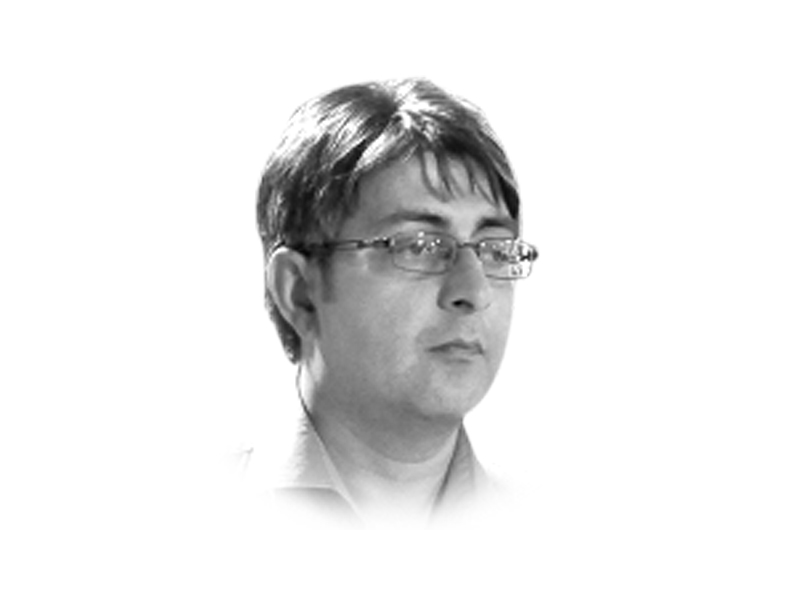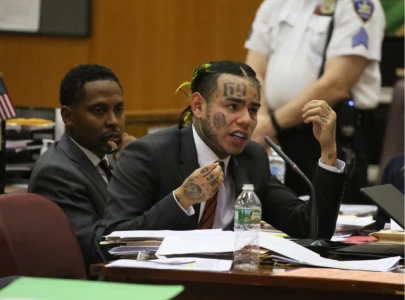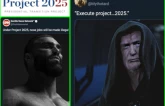
On September 30, a special court in Lucknow robbed India of its democratic credentials. Democracies usually have fully functioning institutions where some semblance of impartiality is always maintained. The verdict of the Babri Masjid demolition case, which came after 28 years of the incident, was unique. All 32 accused in one of history’s most well documented fanatic campaigns, which left 2,000 (mainly Muslims) dead and incurred a loss of around $3.6 billion, were acquitted citing absence of evidence. In 1992, LK Advani, flanked by the ruling BJP’s leading lights including one Narendra Modi, had led a chariot march which culminated into the mob frenzy that brought the Babri structure down and a bloodbath all in plain sight. If a couple of them were spared it would have been expediency, if only a few of them were punished it would have been tokenism, but when all of them walked free this had to be a message. The stranglehold of the RSS and its inspired political parties on Indian state and society was complete. I have already pointed out in a separate piece that in 1988, Girilal Jain, the then editor of The Times of India and a far-right ideologue, had used the term “clash of civilisations” to describe the Babri Masjid dispute.
On September 29, at the debate stage, President Trump shocked a global audience when he visibly and unambiguously failed to condemn white supremacy. While it may further lend credence to the “Trump is a racist” narrative, the reality is far more complicated. When invited to condemn it, he asked the moderator to give him a name so that he could denounce it. When he was offered the name of Proud Boys, the best he could do was to ask the group to “stand back and stand by”. Since then the Proud Boys, a neo-fascist, male only group with white supremacist roots has gone to town in celebration and printed T-shirts with Trump’s words. Originally a part of the alt-right, Proud Boys soon split ways with the big tent movement citing its reservations about the focus on race. They claim to defend the Western civilisation and Western values rather than the white race. The group is connected to Trump campaign’s high-profile surrogates like Roger Stone and is often the first to confront any far-left protest rally challenging President Trump. You can see why he would be reluctant.
On September 25, a 25-year-old man of Pakistani origin was arrested in Paris for carrying out a knife attack ostensibly to protest Charlie Hebdo’s decision to reprint the contentious caricatures. Charlie Hebdo’s decision was apparently meant to mark the trial of those involved in the 2015 terror attack. Usually when an attack of this sort takes place the media usually mentions the country of origin not the city of origin. But reports about the apprehended man, who initially lied about his name and age but remarkably not the country or city of origin, carried the name of the city of his origin — Mandi Bahauddin. And while the Pakistani media was still wrapping its head around the development, the Indian media was already running the interview of the said man’s father claiming how proud he was of his son. Granted India is very close to France these days, because of the Rafale deal of course, and it habitually obsesses about anything that brings the Pakistani state and society into disrepute but this whole affair appeared too picture perfect. It does not hurt that such events further enhance the current Indian ruling elite’s claim that a clash exists between Islam and the West.
On July 24, Turkey’s President Erdogan led the first prayer in Hagia Sophia to mark its conversion into a mosque. When asked to comment on the subject, I told the questioner that I did not see the reason behind the move because right next to Hagia Sophia stands the historic Blue Mosque which can accommodate 10,000 worshippers at a time, where prayers are organised five times daily and has never been seen running to capacity. Erdogan’s decision reverses the order of modern Turkey’s founder and a personal favourite Kemal Ataturk who decided to give it the status of a national museum and ties neatly into the incumbent President’s project of connecting directly to the Ottoman past. Naturally, it also convinces Huntington’s followers that they are on the right path.
You may notice three major trends here. First, the rise of far-right stronger around the world. Two, a push to homogenise their respective societies. Three, an attempt to other anything that does not reinforce this homogeneity, demonise heterogeneity and weaponise cultural boundaries. And while studying these patterns you are shocked by another interesting aspect. The Indian media’s obsession with such stories. Take for instance the above-mentioned stories and google them. You will be surprised to find a disproportionate coverage of all four. This despite the fact that stories like over one year of continued Kashmiri suffering, cow vigilantism in rural UP, the unfolding human tragedy in Indian Assam, economic meltdown and similar major issues are often dropped to accommodate such coverage. What is going on? Has India’s hatred towards China and Muslims in general created a blind spot which does not let it see the plight of its own citizens? Or is it a manifestation of Ajit Doval’s Defensive Offence doctrine? I know it can be dismissed as paranoia but sadly many in the Indian diaspora have not been able to extricate themselves from the negative influence of Modi and his cohorts especially now that they control the powerful Indian state. And while the South Asian diaspora remains deeply divided it has gained a lot of power and influence in the West. It would be great if it could for once decide that it will not support extremism of any kind.
I bring this matter up again and again because my long-held belief is now proven beyond any shadow of doubt. Divisions created by a paranoid worldview never sustain tenable identities. They give birth to the ever-growing sickness of prejudice which tears societies apart. In India, this may lead to casteism, provincialism and linguistic divides, in the Muslim world to sectarianism and in the West to racism.
Like microbes crawling on a tiny pebble ashore an infinite ocean, we sit on planet earth and bemoan shrinking resources and plot against each other when we know it all will hurt us in the end. Instead of investing in hate, prejudice and paranoia true national security concerns ought to invest in the scientific, humanitarian and pluralistic enterprise. The world society is far too intermingled to sustain a push for homogeneity. That way lies only ruin.
Published in The Express Tribune, October 3rd, 2020.
Like Opinion & Editorial on Facebook, follow @ETOpEd on Twitter to receive all updates on all our daily pieces.












COMMENTS
Comments are moderated and generally will be posted if they are on-topic and not abusive.
For more information, please see our Comments FAQ